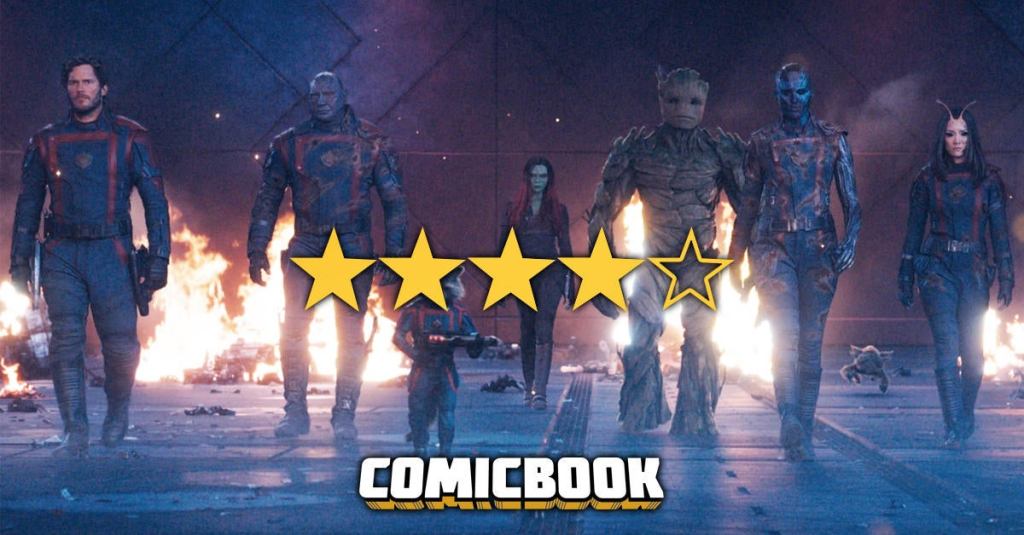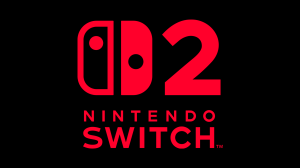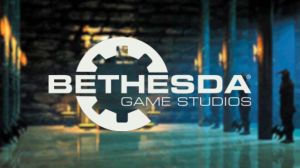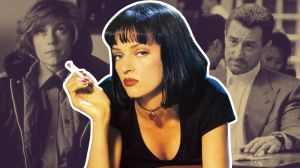Marvel Studios’ superhero films have a tendency to come in threes, as characters like Iron Man, Captain America, Spider-Man, and Ant-Man have all earned trilogies, so the announcement of Guardians of the Galaxy Vol. 3 immediately signaled to audiences that this band of unlikely heroes would be making their curtain call with this third installment. Add to that the very real fact that writer/director James Gunn is jumping ship from Marvel to lead the overall future of DC Studios projects, and fans are primed to say goodbye to this version of the team and these performers indefinitely. With this being the filmmaker’s sendoff to the MCU and this iteration of the team likely coming to an end, Gunn pulled out all the stops to seemingly squeeze everything he wanted to accomplish with this series into Guardians of the Galaxy Vol. 3, and while it feels overstuffed and suffers from the same problems past MCU films have struggled with, the emotional core of the mission is undeniably effective and Gunn delivers the inventive action, humor, and charm into the sequel to send the series out on a high note.
Videos by ComicBook.com
In the wake of Thanos killing the Gamora (Zoe Saldaña) they know and love, the rest of the Guardians are struggling to find their place in the universe and to define their roles within their adoptive family. When Rocket (Bradley Cooper) suffers a near-fatal injury, Star-Lord (Chris Pratt), Drax (Dave Bautista), Nebula (Karen Gillan), Mantis (Pom Klementeiff), Groot (Vin Diesel), and the current version of Gamora embark on a mission to save the pint-sized mechanic, as Rocket internally recalls the traumatic journey that led him to become a Guardian of the Galaxy.
When Gunn first delivered audiences Guardians of the Galaxy back in 2014, he pulled off the massively challenging task of taking a band of unlikely heroes without the cultural footprint of Tony Stark or Steve Rogers and using them to expand the MCU in exciting ways. The variety of these characters, with all their strengths and flaws, is what appealed so much to audiences and made the film a tremendous success. The follow-up film failed to find a cohesive tone throughout and suffered from misplaced dramatic weight, which was only punctuated by the oddball humor from supporting characters. Luckily for audiences, Gunn has gone back to the formula for his MCU debut for a harrowing emotional experience, with action scenes and absurd humor relieving the tension.
To some audiences and to Peter Quill himself, Star-Lord served as the leader of the Guardians, though Vol. 3 thankfully reminds us that Rocket has always been the one calling the shots, not only due to being the most charming character to watch, but also from countlessly showing that he was the most resourceful.
In the first movie, Rocket emotionally exclaims, “I didn’t ask to get made! I didn’t ask to be torn apart and put back together over and over and turned into some little monster!” Vol. 3 painstakingly explores those origins, making for a number of horrifying and heart-wrenching sequences, while also offering glimmers of hope regarding his early days of companionship. The VFX of a young Rocket and various acquaintances are touching, adorable, and tragic from one second to the next. The impact of this entire storyline, which takes up a significant chunk of the film’s run time, is immensely visceral and will retroactively impact everything you thought you knew about an already endearing figure. Gunn somehow manages to sneak in his own tribute to Martin Rosen’s animated The Plague Dogs with this origin story, albeit using Marvel characters, which is about as depressing as it sounds.
Rocket isn’t the only one with an effective emotional trajectory, as Star-Lord struggles to fill the void of losing the Gamora he loved, Nebula struggles with having leadership thrust upon her, and both Drax and Mantis grow exhausted from being underestimated and dismissed by those closest to them. Each of these journeys is explored with nuance, and in comparison to how overtly depressing Rocket’s journey is delivered, these more subtle emotional arcs help amplify the overall emotional impact of the entire narrative, giving any longtime MCU fan at least one character to connect with, if not being able to sympathize with them all.
Even with how truly devastating Rocket’s journey is, Gunn still manages to find ways to deliver entirely unexpected sequences both visually and conceptually. Especially coming off of Ant-Man and the Wasp: Quantumania, which suffered from feeling like the humans were the only actual objects in any given scene amidst endless seas of CG scenery, Vol. 3 is a much more tactile experience. An extended sequence in the first act sees the gang going to a massive, organic structure, replacing metallic walls, levers, and buttons with slime, ooze, and other grotesqueries. Whatever methods might have been utilized to bring such a sequence to life, it feels lived-in and as though these performers were actually engaging with their surroundings. Many locations felt whimsical and imaginatively conceived, feeling like a breath of fresh air following multiple MCU productions full of muted tones. Similarly, while the Guardians have never particularly been known for being the most powerful or skilled combatants in the Marvel roster, the action sequences feel experimental but never showy, as Gunn aimed to showcase these characters in new and compelling ways.
Gunn going for broke pays off in a lot of ways for the film, but the narrative momentum of the adventure definitely suffers from indulging his every desire. Even if the Guardians’ visit to an organic space station or to a Counter-Earth are entertaining on a more scene-by-scene basis, the amount of time we spent with these characters engaging in their signature bickering and quipping in these locales is unnecessary for the big picture. Given how almost the entirety of Guardians of the Galaxy Vol. 2 feels like a superficial, snarky, and sarcastic deviation, Vol. 3 will evoke similar frustrations. The overall MCU is often lambasted for its arbitrary McGuffins motivating adventures, and Vol. 3 is sometimes no different, regularly giving off big “this could have been an email” energy, no matter how entertaining these scenes might be in the moment.
Another Gunn signature is the film’s soundtrack, and while the debut film had constraints of using a retro soundtrack, the years have allowed in-world reasons for incorporating more modern tracks. Songs like Radiohead’s “Creep” and Spacehog’s “In the Meantime” are used effectively, either for their thematic resonance or more aesthetic appeal, though songs like The Flaming Lips’ “Do You Realize?” and Faith No More’s “We Care a Lot” feel more like an opportunity for Gunn to showcase his own musical taste than elevating a sequence.
One of the most anticipated elements that fans were looking forward to with this latest sequel, as many have been asking for it for a decade, is Will Poulter’s debut as Adam Warlock. Taken on his own, Poulter’s Warlock is powerful, quirky, and adds a fresh dynamic to the overall team. From a bigger picture, Warlock feels entirely representative of a Marvel Studios directive for Gunn to introduce a new character so that the Guardians can have future adventures, shoehorning the cosmic character in entirely arbitrarily. His inclusion feels reminiscent of Venom in Sam Raimi’s Spider-Man 3, as Raimi often expressed his disinterest in a character like Venom in favor of classic villains, only to ultimately include the concept inorganically. There’s nothing necessarily wrong with Poulter’s Warlock, but he’s often out on his own and doing things entirely unrelated to the Guardians, with his journey only occasionally overlapping with the team. Thematically there’s an importance to including Warlock, but his scenes regularly grind the narrative momentum to a halt and we can’t help but wish his entire plot was excised from this sequel and saved for a time when he could more authentically be incorporated.
The film’s villain, The High Evolutionary (Chukwudi Iwuji), is another example of a standard Marvel shortcoming, in which we get a villain who, no matter how compelling or watchable they might be, ultimately feels hollow and one-dimensional. Iwuji does his best to make the figure chilling and treacherous in every scene he’s in, and with how his history ties into Rocket’s trauma and how he has a disturbing plan for building a new, better universe is nefarious in a way that’s different from other antagonists, The High Evolutionary’s inclusion is as forgettable as a majority of other Marvel villains. With his evil plan feeling lifted from H.G. Wells’ The Island of Dr. Moreau, The High Evolutionary’s screen time and inclusion of his creations often evoke memories of the doomed and disappointing 1996 Dr. Moreau adaptation, marking a stark contrast to what the rest of the Guardians are doing.
Part of what has made Gunn’s work in the MCU so cherished is the ways in which he includes relatable emotional arcs into intergalactic adventures that other superhero stories aren’t quite capable of. The Guardians films aren’t about a battle between good and evil, so much as they’re often about the emotional battles going on inside of its protagonists, which are compounded by the threats they face.
In that respect, it’s also hard not to think of Gunn’s own trajectory since he first partnered with Marvel Studios. Gunn went from having the keys to the kingdom after what he accomplished with the debut film, to being fired for offensive remarks made earlier in his career, to making an acclaimed adventure for a competing studio, to being welcomed back to Marvel for one final film, before he makes a permanent jump over to DC. Characters in Vol. 3 are lambasted for the worst things they’ve done, regardless of the remorse they’ve shown or how they try to prove the error of their ways, and like Gunn, many of them are offered a chance at redemption. While a history of Gunn’s tenure with Marvel isn’t required to enjoy the emotional elements of Vol. 3, several scenes will have multiple layers of significance and resonate even more strongly with those who have kept up with Gunn’s career.
Guardians of the Galaxy Vol. 3 is the culmination of everything James Gunn has been building toward with these characters, warts and all. The adventure is the most abjectly emotional, as it goes for the jugular with not only Rocket’s story, but the destination that many other characters arrive at, while the filmmaker also manages to put his mark on a studio known for regurgitating formulaic adventures packed with overwhelming sameness. The introduction of arbitrary supporting characters and inconsequential villains is yet another reminder of the Marvel machine, and while there’s plenty of side quests and self-aggrandizing, the impact of Rocket’s emotional arc is one of the most powerful we’ve seen in the entire MCU, the inventiveness of action sequences, and a cathartic third act manage to send the trilogy out on a high note.
Rating: 4 out of 5

Guardians of the Galaxy Vol. 3 hits theaters on May 5th.








